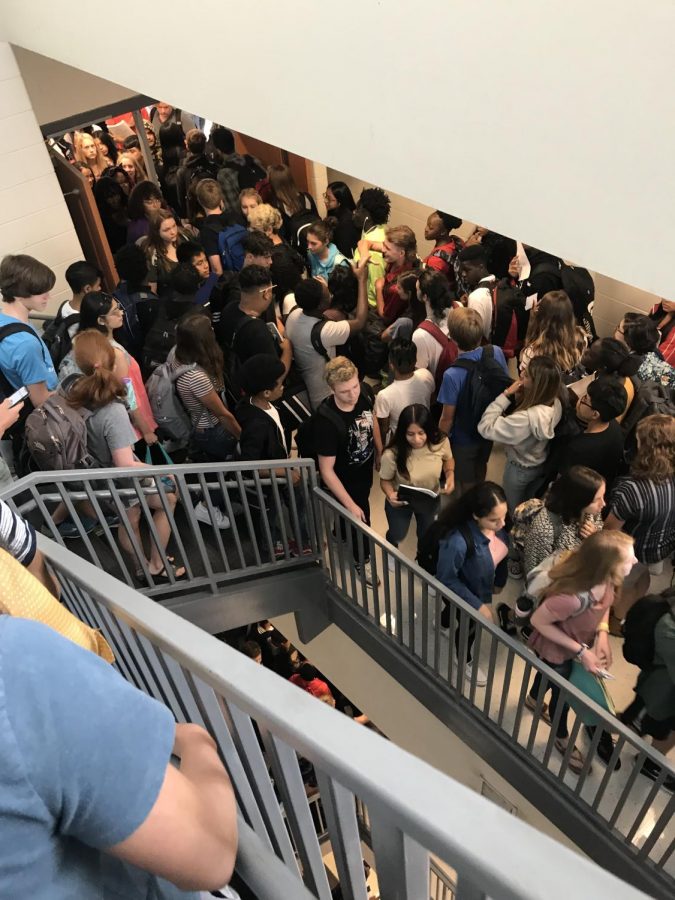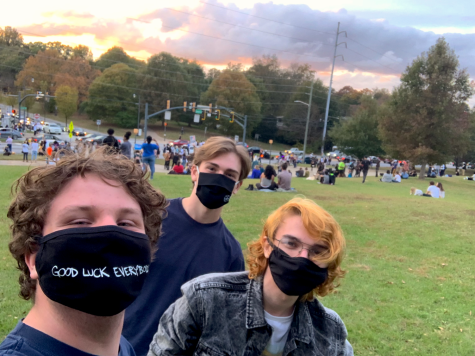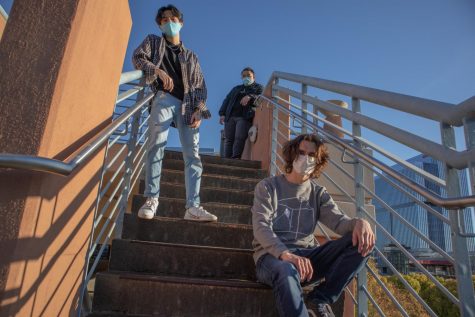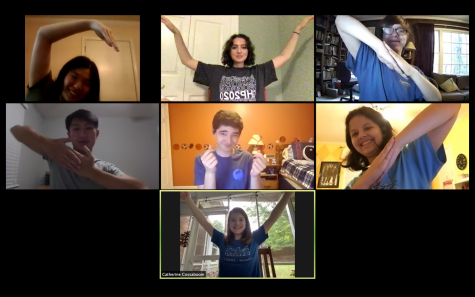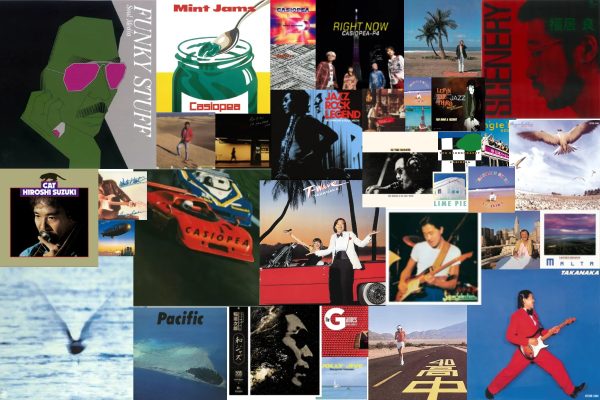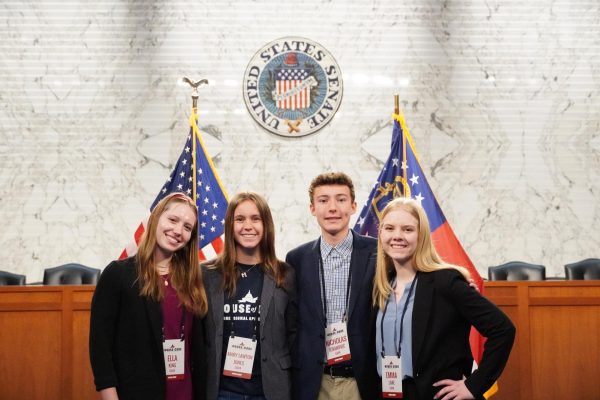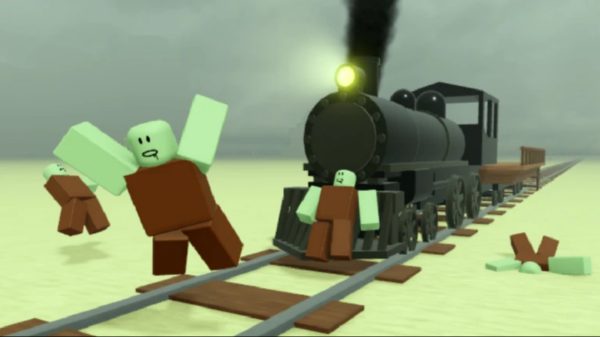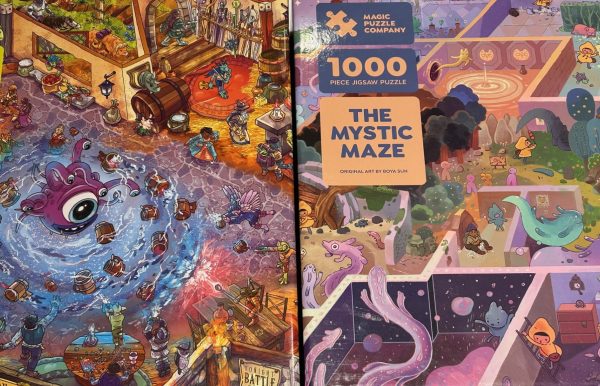2020 Visions: Looking Back on an Unforgettable Year [January – March]
Chamblee students during a class change from the third to fourth floor.
[Adviser’s note: For this project, each student in Journalism I and II interviewed a handful of Chamblee Charter High School students, asking them all the same set of questions developed by the editorial staff. After reporters transcribed these interviews, each editor took one quarter of the year to pull quotes for and arrange into a historical record: the following article details the first quarter of the year. I thank each and everyone for their effort and patience with this long-term project. For other installments, see here. – Fred Avett]
It’s always entertaining to look back on what we remember of the most important days of our lives, particularly the mundane details that helped set the scene of a time you cherished. You may remember what you had for breakfast, the day you got great news, where you were when you found out you had passed a test, or what you were wearing the day you got your driver’s license.
But this also means we have strange, uncomfortable, or even saddening associations tied with moments we wouldn’t look back on so fondly. Looking back on the beginning of the year 2020 has the strange aftertaste of seeing photographs of a deceased loved one: uncomfortably clear and familiar, but also intensely distant.
The year 2020 has ended, but it is worth remembering. To help us do that, The Blue & Gold staff interviewed dozens of current and former CCHS students and asked them to reflect on all of these moments, everything from the seemingly insignificant to the major life changes the pandemic has forced all of us to confront. This is our story.
Calm Before the Storm
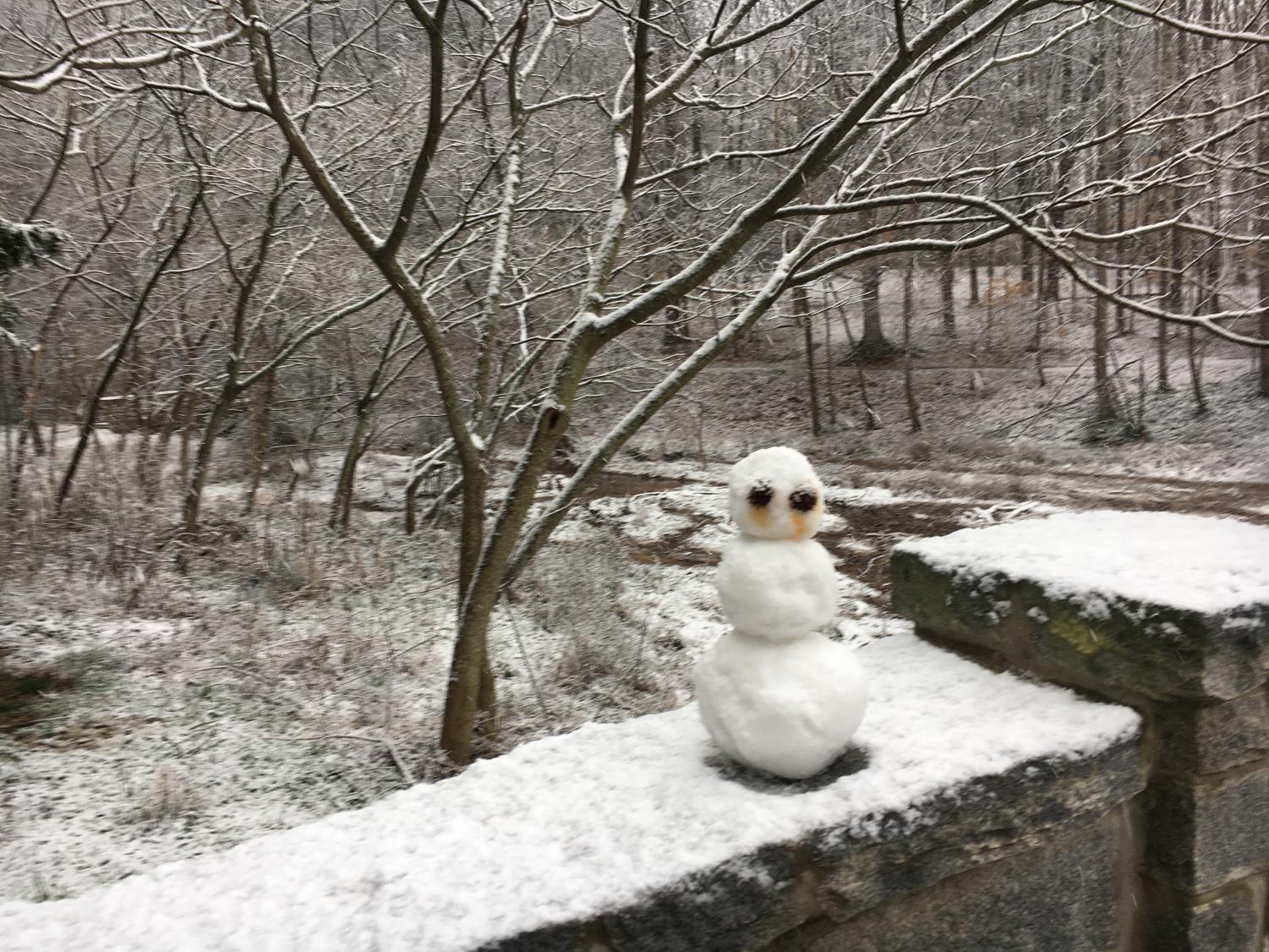
There’s certainly a refreshing optimism about New Year’s resolutions, even if none of them come true or last past February. And whether you’re 18 or 80, everyone could probably take comfort in the idea that the new year gives you the chance to significantly improve your life. That being said, it’s almost comical to look back at the expectations we set for ourselves back in January. There was no way of knowing the year would turn out the way it did, or that we’d have 87 extra weeks of spring break, or even if 2021 would be any better.
In fact, it was on New Year’s Eve Day, December 31, 2019, that the World Health Organization first received a report of a new coronavirus (dubbed SARS-CoV-2) that was infecting people in China. The disease the virus caused, which has come to be known as COVID-19, caused flu-like symptoms in people.
But for a brief moment in time, many Chamblee students had actually predicted a great vision for the year 2020.
“I definitely was thinking that 2020 was going to be, like, the year,” said Ashley Michel (‘21). “Because we were talking about holidays—some holidays would fall on Fridays and Saturdays—and movies that were going to come out. I think that really hyped 2020. So I didn’t have any resolutions, but I had super high expectations.”
“I would say that I wanted to care about my mental health more in 2020 because I found first semester, [fall 2019], to be pretty rough,” said Deanna Sharpe (‘22). “I wanted to write more and wanted to make more time for doing things I like.”
A few even set specific goals for making the year as good as it could be.
“My family and I always get together every January first and write New Year’s resolutions together,” said Sophia Shi (‘24). “Looking back, maybe I was a little bit ambitious, but my New Year’s resolutions were mainly to develop healthier habits, I guess. For example, I play soccer, I wanted to touch a soccer ball every day, or I wanted to volunteer more, limit screen time, or meditate even, wake up early, things like this.”
“I wanted to get better at piano,” said Alek Dyer (‘23). “That’s the only thing I remember. Honestly, I started playing piano for fun and I would just play songs I liked, but I wanted to get better at sight-reading and whatnot.”
“I wanted to be more responsible,” said Gabriella Mayes (‘24). “I wanted to make sure that I got all my work done, and I wanted to hang out with my friends more.”
“I was also going to get better grades and start my job, so I can save money for a car,” said Jordan Beckford (‘21). “I don’t have a job anymore—I had to quit due to COVID. How have [my goals] changed? I’m still on the grade track, I just don’t have a job.”
“I didn’t have any goals,” said Esha Pamidi (‘21), “but I was like, ‘Oh, junior year and you know, I’m going to be a senior like I am right now. And I was like, ‘Oh, that’s exciting, college is soon, then graduation.’ I was just more excited for the year and I guess corona happened and then [that feeling] kind of died down.”
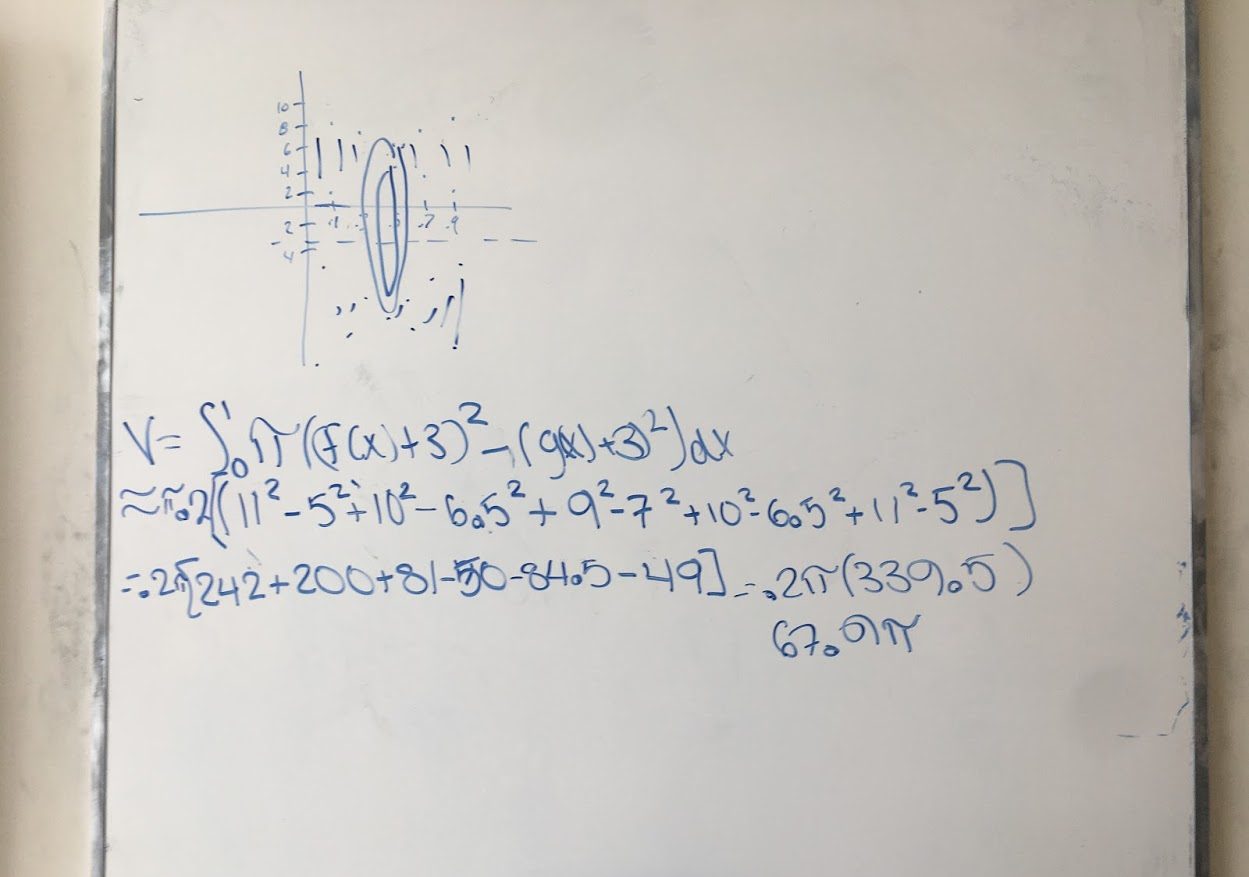
Many students laid out similar ambitions that now seem as though they would have been nearly impossible to accomplish. Spending less time online or behind a screen, in particular, wasn’t even an option by March, especially for those who had hoped to begin the year with academic success.
“I can’t think of anything else other than the word ‘fine’,” said Dyer when asked to describe the beginning of the spring semester. “Everything was just super normal. My grades were good and I still had my friends. So nothing too crazy.”
“Everything was going really well,” said Mayes. “I was doing really well in all of my classes and I got to see my friends every day. And it was going really well.”
“I was having a great time because we were doing the musical [The Drowsy Chaperone] then,” said Colette “Coco” Bradford (‘23). “Once it was over, literally the week before covid, I was like, ‘This is a bummer. I don’t have anything to do.’ So, like [the coronavirus] couldn’t have really come at a better time for me. It still sucks, but I’m glad that it [the musical] happened before COVID ‘cause otherwise I would have been really upset.”
“It was a very fun part of school, pre-COVID,” said Beckford. “I was dual-enrolled, so I had a pretty nice schedule, and I had a job. It wasn’t as stressful as it is now.”
“I was still in eighth grade, middle school,” said Shi, “and, honestly, during that time, school was fine. Soccer season had started and I was really excited for that. And in eighth grade, towards the end, there are a lot more events for eighth-graders, like the eighth-grade dance and different trips that we were going to take. Unfortunately, those things didn’t happen because of COVID. But at that time, everything was fine.”
One change that was implemented before schools closed was the STAR period, which adjusted the daily schedule of classes at CCHS to allow a 20-minute block at the end of fourth period. For some students, it meant mandated tutorials. For others, it meant something else.
“It was helpful because I got to finish most of my work early,” recalled Jahin Zashim (‘23). “And then like if I struggled with something possibly, I would ask [my teachers], ‘Oh, can you help me?’ They’re like, ‘Oh, sure.’ So I mean, I couldn’t come to most morning tutorials because I wasn’t really a morning person. But STAR [period], it helped.”
“I’m glad you mentioned STAR period because the levels of serotonin that was just released to me remembering like, ‘Oh my god, school. I completely forgot about that’,” added Michel. “But that time was like my social time. So I would go with my friends, we would go to AP Psych and do test corrections. Or maybe just go to French class and just talk to teachers. But I was never behind on my work or needed tutorial to really use STAR period for what it was for. It was kind of mainly my social time. But yeah, I completely forgot about that. So thank you for bringing it up.”
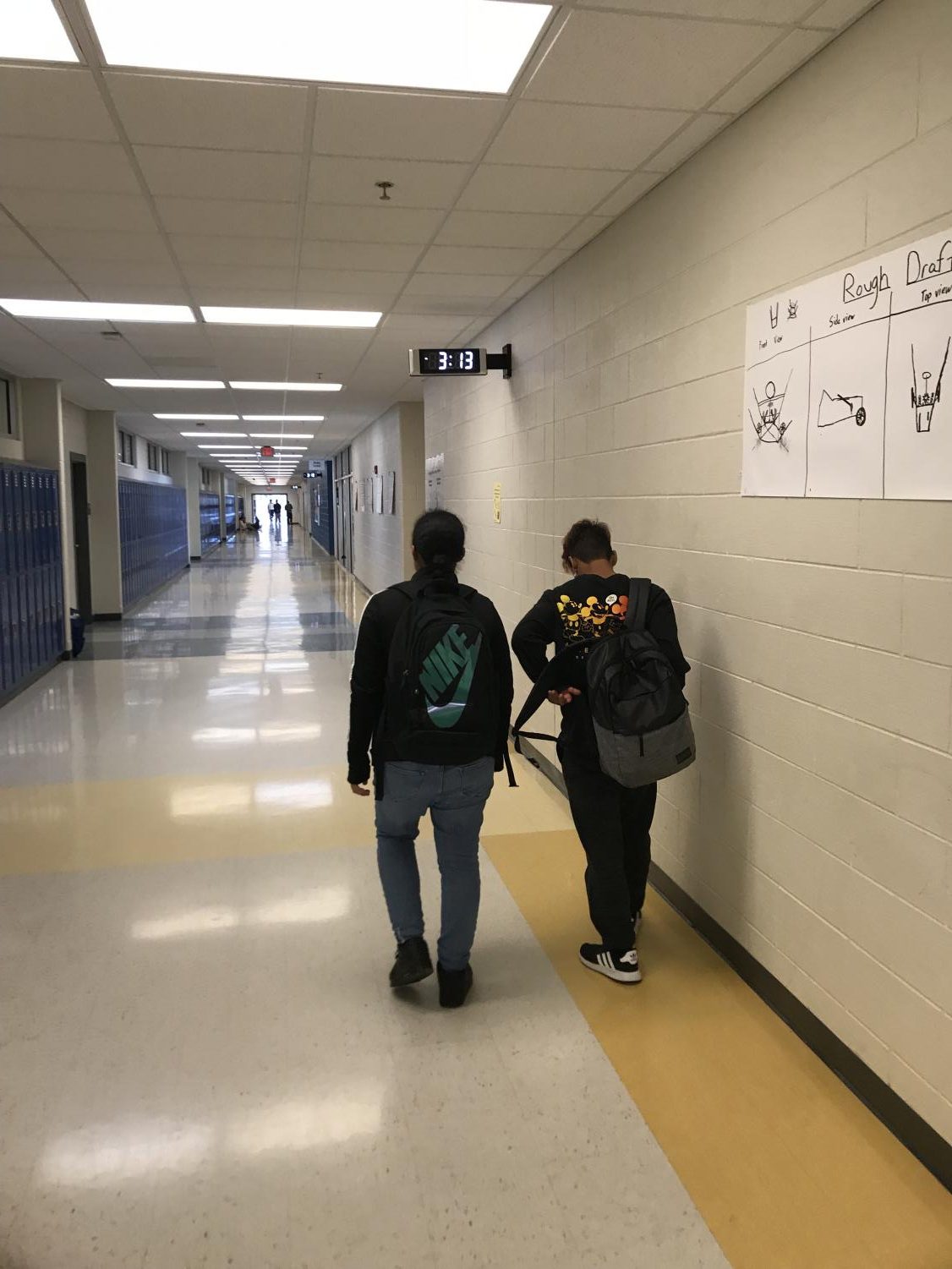
“Yeah, I actually loved STAR period, too, but I didn’t really use it for what it was for,” said Sharpe. “Since I have friends who are like international, I guess I would use it to talk to them because normally school would interfere with time zones. So when we got that I would use that a lot. Unless I had a math test that day, then I would go to tutorial.”
Outside of academics, many students struggled with the constant flow of devastating headlines that defined the early months of the year, from threats of war with Iran to the tragic deaths of Kobe and Gianna Bryant.
“Yeah, all the stuff about Iran was kinda scary actually. It was on the news a lot and all the memes made it seem really bad. But Kobe Bryant was all over the place and even though I don’t watch basketball I found myself tuning in to stories about him,” said Fernando Aguilar (‘23).
“He’s a big part of a lot of people’s childhoods,” said Hendrix Wallen (‘22). “And I remember, [being] with my neighbors playing 2k13 and everybody just picking the Lakers and the Heat and just like duking it out. It’s so much respect and respect to his family because I’m surprised that they’re even like standing up because of corona and [his death].”
“I feel like there was a lot thrown at us at one time. Like it was a lot of different scary situations for all of us to be worrying about at once, and I was just trying to stay normal,” Katie Mogilski (‘21) added.
On top of this, environmental concerns plagued many students’ thoughts as well as set a horrifying mood for the rest of the year.
“The fires in Australia were more concerning to me. I guess they just kind of felt like we have the pandemic and the fires, it just seemed like the trailer for an apocalyptic movie,” said senior Megan Woo (‘21).
Besides these events being generally stressful, some students were actually affected by them directly. On the contrary, some were not.
“The one that impacted me more was the flooding in Indonesia because that’s right next to Malaysia, where my family is,” said senior Victor Lim (‘21).
“I just kind of like, focus on myself more than all that stuff,” said Lizzie Boer (’23). “I don’t pay that much attention to the news.”
Bad News Travels Fast
Unfortunately, though, this was only the beginning of the anxiety, fear, and uncertainty that would define the rest of the year. Many students could easily recall the moment they first heard of the coronavirus pandemic’s arrival in the United States but of course, were unaware of how severely it would affect them in the coming months.
“January was kind of bad. Then February was bad and on and on and on,” recalled Toby Russell (‘23). “And I saw like all the memes and stuff about, you know, ‘Oh no, there’s a virus in China,’ but I never really expected this. Like I saw it. I was watching, I used to watch the news a lot more than I do now, and so I saw that the virus had reached Washington [state]. And I assumed that they would be able to like, contain it, and it would never, never reach this.”
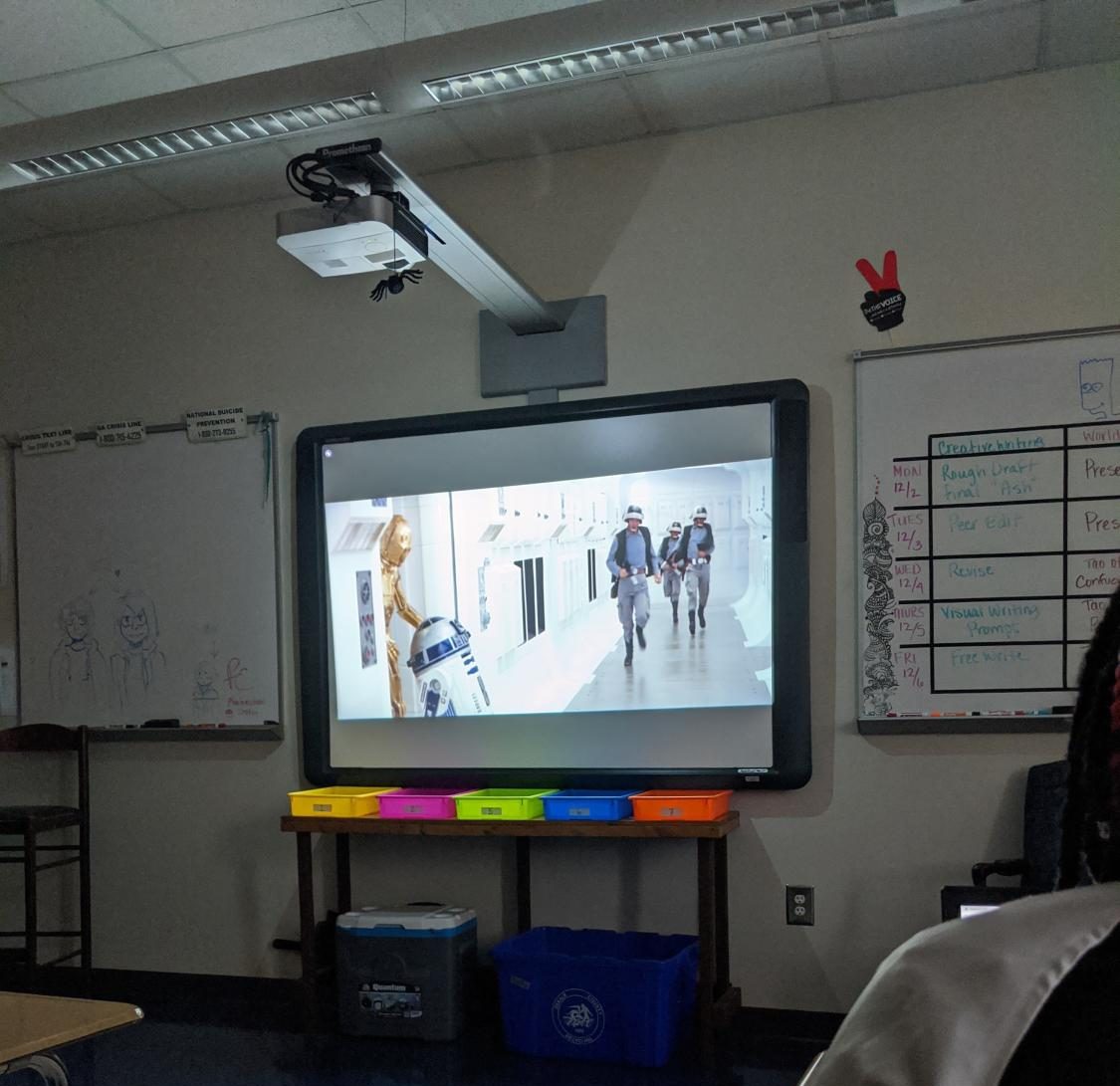
“And then I’ve kind of just gotten used to every single month, there consistently being something, you know, really screwed up that happens,” Russell continued. “You know? Whether it be like George Floyd, and then President Trump getting coronavirus, and then just, you know, more lockdown. I never really expected that to get this bad this year. I think at the beginning of the year, it was kinda just funny to me ’cause it never really affected me. But then as soon as it started, like coming to Atlanta, it was really, really surprising.”
“I heard about it on the news,” said Mayes. “I wasn’t really worried because it was on the other side of the world and I never thought that it was going to get all the way over here. And I wasn’t really worried about it. I just thought it was like a sickness.”
“It was all the memes,” said Wallen of the first time he heard of the coronavirus. “They were, they were hilarious. I admit, and nobody really thought it was going to get to the stage. Not to Spanish flu numbers.”
“I heard about it, I think, at the end of February,” recalled Beckford, “but I wasn’t as worried about it because people were saying it’s like the flu.”
“I thought it was stupid,” said Boer. “I thought it would go away and then it didn’t.”
“I think it was about in January,” said Muhammad Ifaz Rahman (‘23). “The coronavirus was spreading in China and I was like ‘Oh my god, it’s going to [come to the] U.S. It’s going [to have] a very bad effect.”
On January 21, the first case of the coronavirus was reported in the United States, but it was all the way in Washington state.
“I remember being in Georgia Studies, that was my last period of the day,” recalled Shi, who was enrolled at Chamblee Middle School at the time. “And my teacher mentioned it after we watched CNN 10. And I went home that day and talked to my parents. I’m Chinese, so obviously, this originated in China, and my parents also knew about it, but we didn’t think too much of it at the time. We were just like, ‘Oh yeah, there’s this virus, check up on our family members.’ None of them lived near the epicenter of the outbreak, so we were fine. And we kind of just moved on.”
Then more and more of her classmates started talking about COVID-19.
“Actually, at one point I had a pretty bad cough, but I was still going to school,” Shi said. “It wasn’t contagious or anything. I think it might’ve been just some bronchitis, but people would make some jokes like, ‘Oh, she has coronavirus.’ And I laughed it off, but I had no idea it would spread to this extent.”
“I heard about it first when it was, as far as anyone knew, in China and like they were building those hospitals really quick, like they threw up an entire huge hospital in like four days,” recalled Luca Antinozzi (‘22). “That was pretty interesting. And it wasn’t that I wasn’t thinking that it was serious, but […] I remember to mess with Ms. Pascale, me and some girl were like eating pasta out of the same bowl, and like that kind of thing.”
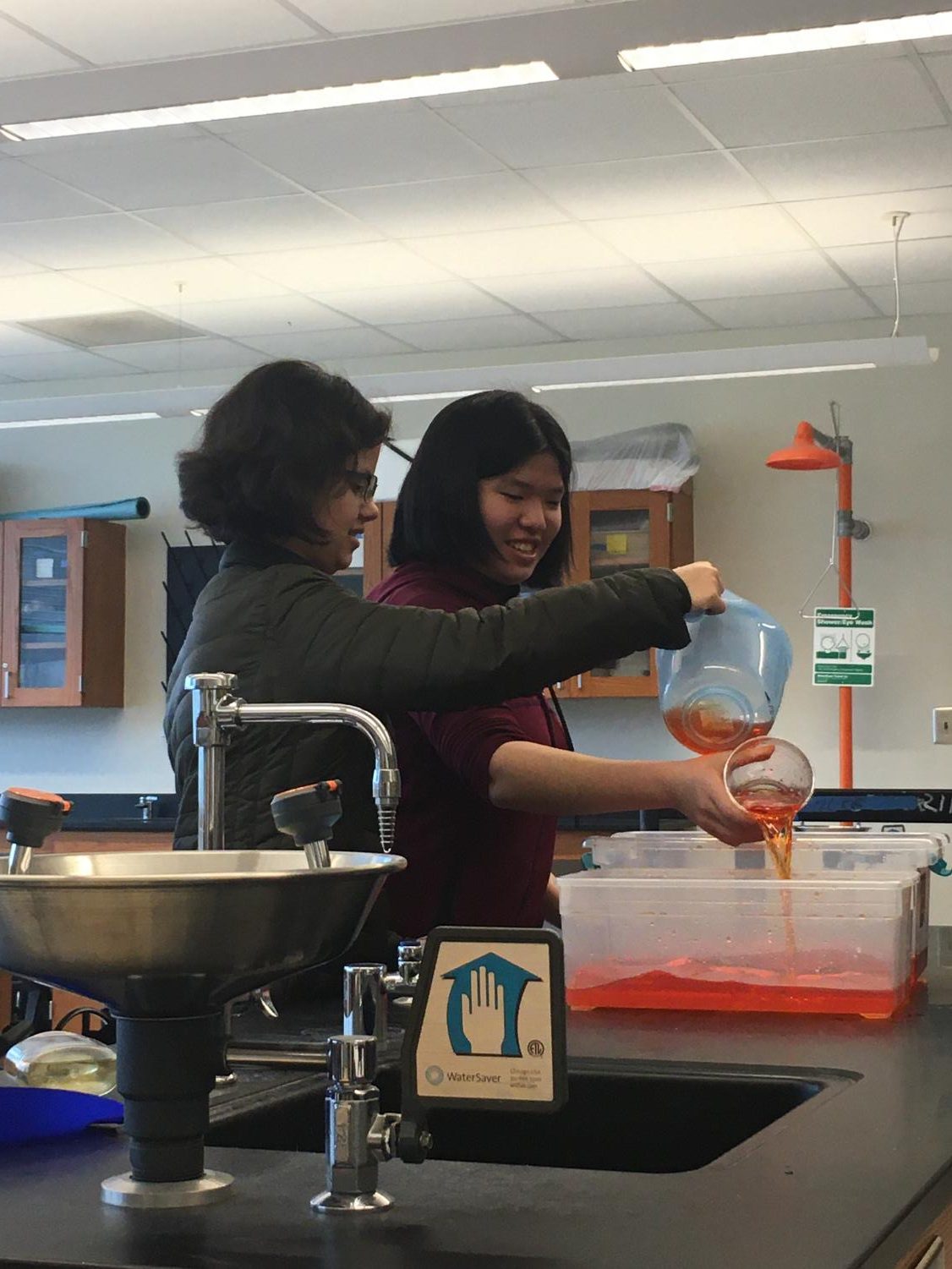
“I remember being in Dr. Zuehlke’s class and she mentioned it and I know Ms. Kaspar was mentioning it too. She was like, ‘Okay, like we have a possibility that this virus is going to come to America. How can we as SGA deal with this and help students be motivated?’ But I know Dr. Z kept saying like, ‘Oh, it’s not that bad’. Like, ‘You guys will be okay’. She did emphasize on how, like, younger people, you guys will be okay,” said Joanna Louis-Ugbo (‘22) of her first time hearing about the virus. “And then whenever someone asks like, if school is going to be canceled because of this, she was like, ‘No, like, it might be like a week or two, but you guys will be back.’”
“I heard about it in biology. Ms. Peterson brought it up,” remembers Pamidi. “She was like, ‘Oh, did you guys hear there might be a new virus?’ And so we just kind of talked about that every morning. She would give us updates on it.”
“We all thought that it wasn’t going to get this bad,” she said. “Because of all the information that we were given, it was like, ‘Oh, it doesn’t really affect younger people, like we’re all going to be fine. It’s just like the flu.’ But once it did get here, it’s much worse than that. But we thought it was pretty light and not a big deal when we first heard about it.”
“When I found out what it was, I know it was probably from TikTok because I remember everyone making all the jokes about it,” recalled Michel. “And I was like, ‘Oh Coronavirus, haha, all the way in China. Doesn’t affect me at all.’ And then in March, I did go on a trip downtown for a [Health Occupations Students of America] conference. And that was like, a week before we got out of school. And I was like, ‘Oh, like, corona’s just a joke.’ And my mom was like, ‘Be careful, sanitize.’”
“I think it was in the background on the news,” said Ariel Raggs (‘21) of hearing initial reports about the coronavirus. “I was like, ‘Man, sucks for the people in China that they’re getting a disease. That sucks.’ And then I went on my way. And then they were like, ‘Oh, it’s here in America,’ and I was like, ‘Can’t be that bad. There’s been disease before, right?’ And I was wrong.”
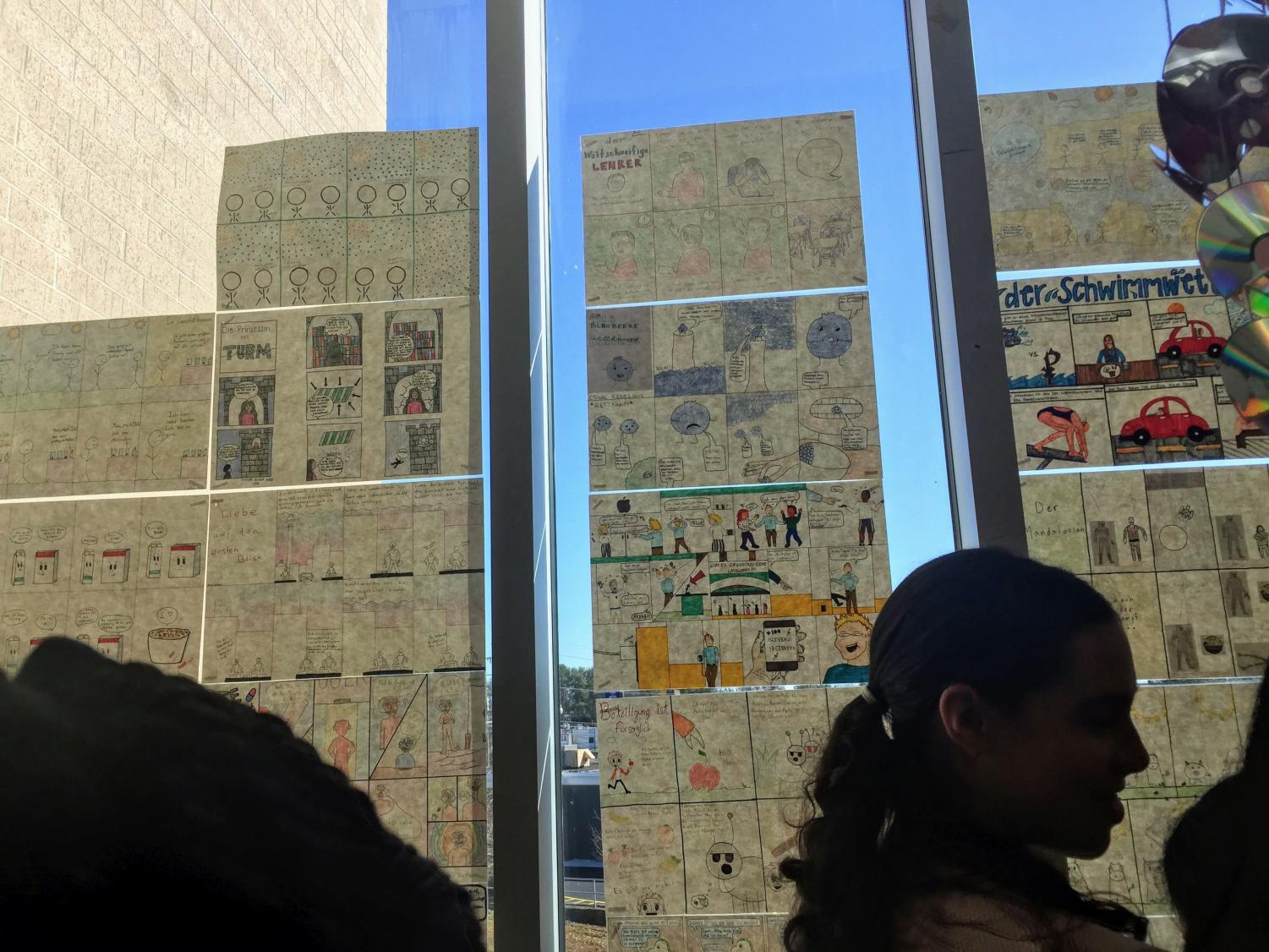
Many students discussed similar memories of their false predictions regarding the pandemic.
“Yeah I remember, my mom called me into her room, and she was like, ‘There’s a new plague.’ This was in like January, and I thought she was being crazy because she’s always like that, she always finds news stories. And she was like, ‘It’s the end of the world,’ and I was like, ‘Mom. You’re crazy.’ And my brother was like, ‘Are we gonna die?’ and I said, ‘No, everything’s gonna be fine. It’s gonna go away,’” said Olivia Mitchell (‘22) of the first time she heard about the virus. “And then it didn’t go away, and she was right. And then, I felt really dumb after that.”
“My normal was doing theater,” said Mogilski, “and just doing that and the fact that we did [the musical Drowsy Chaperone] the weekend before school was canceled is just crazy, how no one got sick. It’s just like… it was so nothing and then it turned into the biggest thing in every person’s life.”
On March 2, a father and son in Fulton County who had returned from a trip to Italy became the first reported COVID-19 cases in Georgia.
Until Further Notice
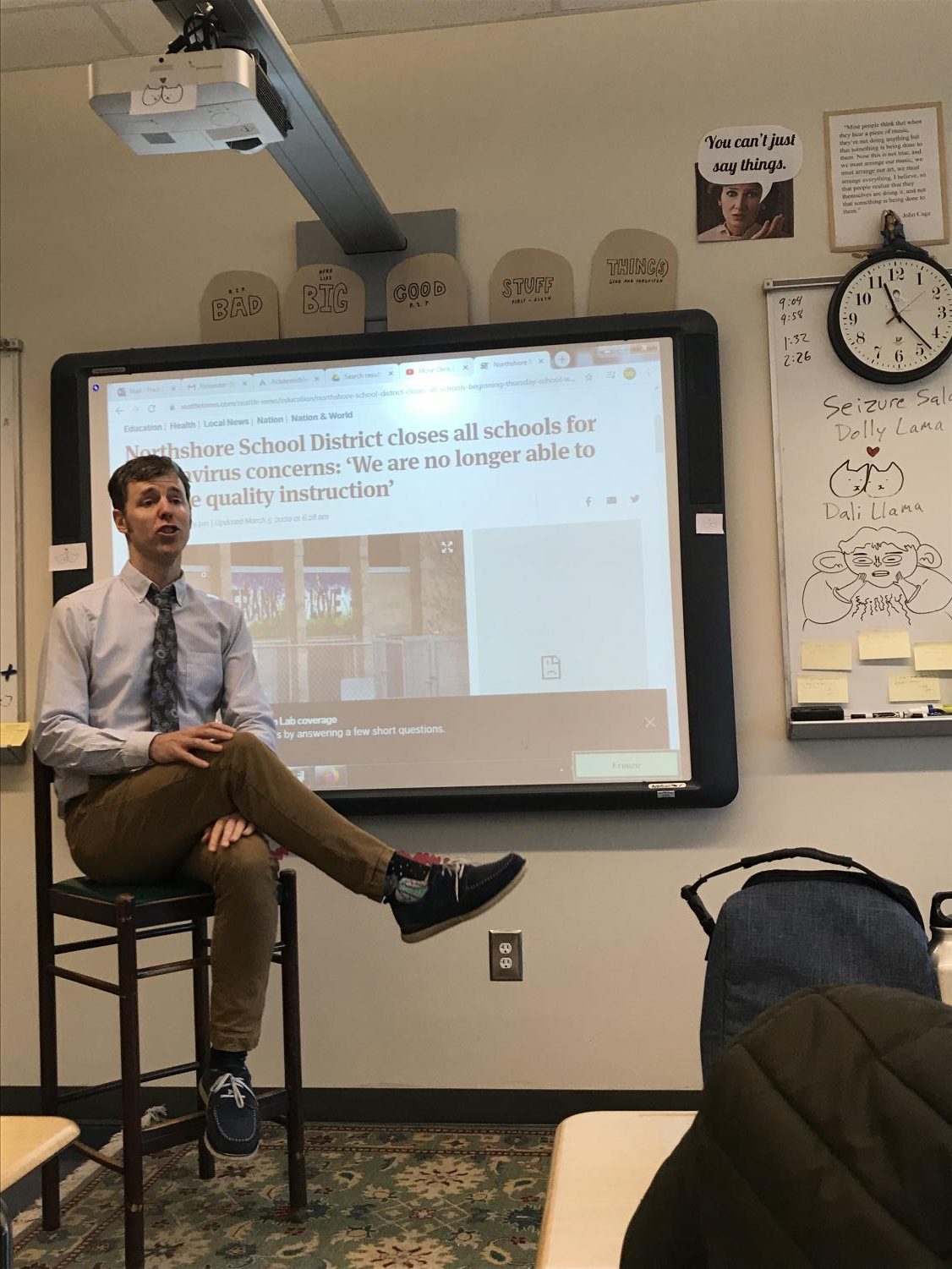
Students, staff members, and parents all watched the news as new cases of the coronavirus popped up around metro Atlanta and in its schools.
On March 9, the DeKalb County School District announced it was suspending all field trips, urging students and staff with flu-like symptoms to stay home and to limit travel outside the state of Georgia.
“I don’t think anybody expected the school to get closed,” said Russell of the mindset most students had in early March. “I knew that as schools around us closed, chances are we’d get closed down for like two weeks. But I think one or two schools were closing and opening back up, and it was fine. So I kind of expected schools would be closed for like two weeks, maybe a month and then we’d be back. But I mean, we haven’t, we haven’t been back.”
“It was quite normal,” said Ifaz Rahman. “People were doing classes like usual. And we just left the school and after we came back home, we just saw that the school had been closed. It was like, ‘Oh my god, it’s really bad.’ I was quite nervous.”
On March 11, the World Health Organization declared the coronavirus as a pandemic. Perhaps more relevant to many CCHS students: the National Basketball Association suspended its games until further notice.
“I was actually a little scared because my homeroom teacher had to leave school early because she felt like she was a little sick,” said Noah Cranman (‘24). “And so, that made me a little scared for my health because like not even days before she did an activity with food. That just made me think back to like, what could have happened, what kind of interactions could have passed on this virus to me. And that was definitely something that I remember very vividly.”
“I remember the last day it was [the day before] Pi Day (March 12),” said Michel. “So for my pre-calculus class, everybody brought different flavors of pie. And we were just eating pie. And it was so fun. So I’m glad my last day was great before everything was canceled. And I was so happy because I had my SAT that Saturday, and I was so nervous and scared. I wasn’t prepared. So I was like, thank god. I don’t have to take it.”
Michel would schedule the SAT three times during the year only to have it canceled each time.
“We were sitting in Mr. Demer’s class making guesses,” recalled Raggs. “Some people were saying we are going home today. I had specifically said they were trying to keep us ’til Monday. They are going to keep us ’til Monday and then they are going to shut down the schools. That’s what we did in Demer’s class after the education had stopped. A majority of people said they were going to make us go to the end of the [next] week.”
“DeKalb County does not like giving us free days off of school,” said Louis-Ugbo. “But then that day, [March 12], I thought maybe we might have that Monday off. I know we had a break there somewhere, so we’re going to have Monday off anyways. And so that day, I had planned to hang out with my friends after school, and right when I was getting dropped off at my house, we got the notification saying that we’re not going to have school for the next two weeks.”

At 3 PM on Thursday, March 12, Georgia Governor Brian Kemp announced, “Given the rise of the coronavirus, […] if local communities feel it is prudent, you should consider closing daycares and schools as early as tomorrow through the next two weeks.”
Three hours later, the DeKalb County School District announced it was closing “the school district on Monday, March 16, 2020, until further notice. All employees will continue to be paid and will work remotely from home. Student learning will continue through virtual learning assignments in the VERGE platform.” All school functions and activities were also canceled.
“I was at play practice when they all told us that we weren’t going to have school,” said Mayes of her experience on March 12, 2020. “I wasn’t really that worried. I just thought we were going to be out for two weeks. I didn’t think much of it. I thought it was going to be like Spring Break. But, obviously, that didn’t happen.”
“I do remember being really excited because we weren’t going to have to go to school anymore,” said Shi.
“I wore an ugly outfit and I wish I didn’t,” said Boer. “I’m so serious. If I knew that’d be the last day, that people would see me, I would not have worn that.”
“I definitely do [remember March 12],” said Bradford. “Because I remember wanting to make sure that I say bye to everybody at the end of the day. I was walking through the halls that day, I was like, ‘Hey, like, make sure that you say bye before you leave today.’ So then, at the end of the day, I was trying to find everybody and be like, ‘Bye, I’ll see you at some point.’ And I’m glad that I did that.”
“I went to the Lakeside [High School] play [on March 12],” said Nick Harrison (‘23). “And they were handing out hand sanitizer, and I was thinking, ‘Oh, that’s extra precautious,’ but, you know, no social distancing. Because that didn’t exist yet.”
“My friend group and I, we all went to one of our friend’s houses and we were stacked on the bed watching TV,” said Mogilski. “And then we got the email that we weren’t gonna have school indefinitely, and then we’re like, ‘Oh my god, yes, party! Time to see each other every day, I’m gonna have so much fun.’ And then that was last time we all hung out, without being six feet apart.”
“I was gonna go on a date on that Friday, and then corona just ruined it,” said Wallen.
[Part Two of this four-part series will appear next week.]
Your donation will support the student journalists of Chamblee High School Blue & Gold. Your contribution will allow us to print editions of our work and cover our annual website hosting costs. Currently, we are working to fund a Halloween satire edition.
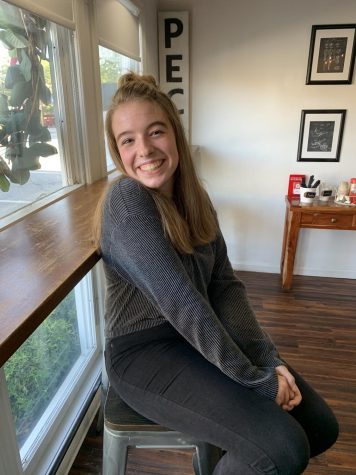
Lucy Roberts is a senior and editor for the Blue & Gold. When she’s not writing op-ed’s or drawing cats, you can find her listening to Taylor Swift and making iced lattes at The Corner Cup. In five years, she hopes to be in a graduate program studying creative writing. This is her second year on the staff.
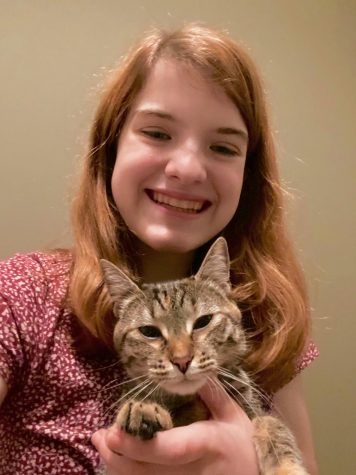
Catherine Cossaboom is a senior and editor of the Blue & Gold. In her free time, you can find her solving way too many math problems, going on wandering walks to make friends with the deer in her neighborhood, and training her kittens to compete at the next Kentucky Derby. In five years, she hopes to be traveling across the country, running math circles, writing columns, and turning math into a performance art to empower girls to take on the world's problems. This is her third year on the staff.
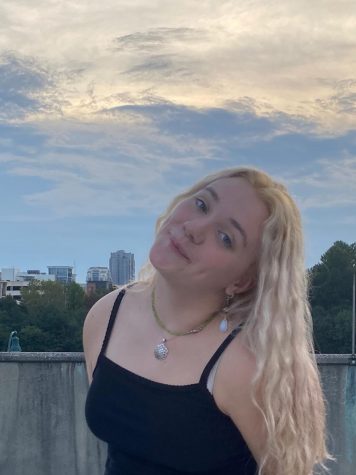
Stella Garrett is a senior and editor-in-chief of the Blue & Gold. Outside of journalism, you can find her making costumes for Chamblee Onstage, drowning at water polo practice, sleeping, and playing with crystals. In five years, she hopes to be working on a farm or traveling the world in her converted sprinter van. This is her third year on the staff.
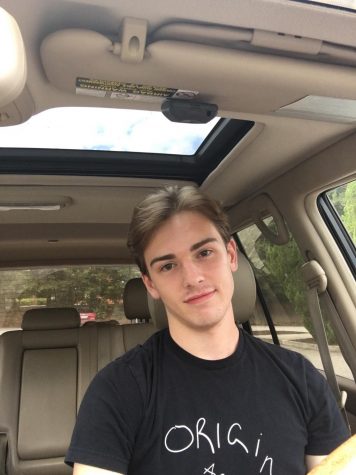
James Hardy is a senior and editor of the Blue & Gold. In his free time, you can find him memorizing baseball stats, exploring local parks, or driving aimlessly instead of finishing his college applications. In five years, he hopes to have finally read the stack of books sitting on his desk. This is his second year on staff.
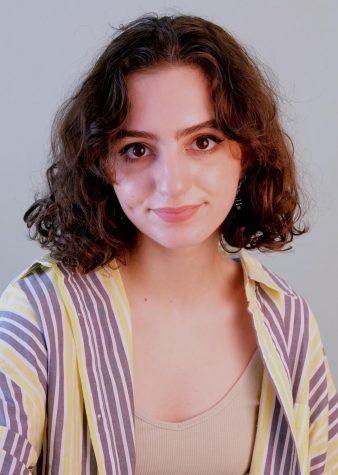
Iris Tsouris is a senior and editor-in-chief of the Blue & Gold. Outside of the paper, you can find her giving out haircuts, designing T-shirts, and sampling fruit at the Buford Highway Farmers Market. In five years, she hopes to be caring for a herd of cattle while making art in an obscure Swiss village. This is her third year on the staff.

